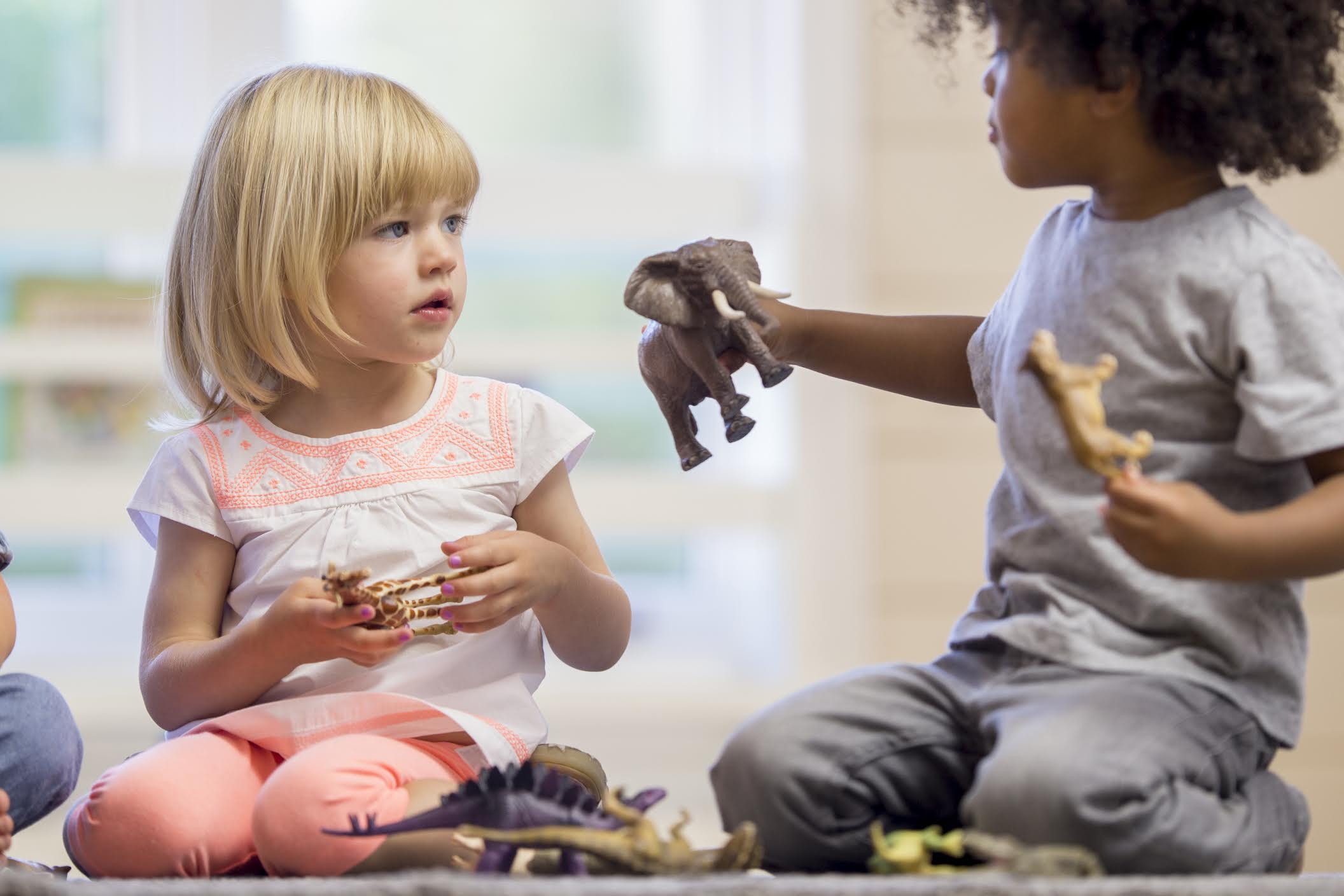When kids get to a certain age, they like to explore different objects and foods around them by play, touch, and taste. This age of exploration is how they learn, and it’s amazing how much our kids absorb in this early childhood stage.
When your child starts in school or preschool, they’ll have to start competing for these objects and even adult attention with other children. This is the start of the sharing process and while some kids may take to it like a duck to water, others might find it hard.
So the question is, should you make your child share their toys with other children, or should they be allowed to play with it until they’re done?
If your child is having trouble sharing, read here for our advice.
Know the policy for sharing in your creche, preschool or school
Different places have different policies – and although sharing is not one that’s widely publicized or talked about it’s worth asking your child’s teacher or caregiver what the policy is for sharing. Some places will have a ‘save the toy’ rule, where a child can ask their teacher to save a toy for them while they go to the bathroom or do a job for their teacher. Once a child is finished with the toy, then it can be passed onto the next child.
Other places will insist that toys are shared equally with all the children, so a John can play with the kitchen for five minutes, then it’s Mary’s turn for five minutes and so on. This way each child gets a fair amount of time to play with each individual toy.
Your child might just be too young
Until the age of about 2 or 2 and a half years, your child won’t really be emotionally equipped to share their toys with other children yet. Until this age, children engage in ‘parallel play’ that is playing alongside other children but not necessarily with them. Their minds centre around what they are feeling and experiencing and are unconcerned with what the other children around them are experiencing.
READ: 5 essential skills your child should have going into big school!
Self preservation
From an early age, children are most concerned with becoming independent from their parents and establishing ownership over their actions (‘Let me tie my own shoes’) and possessions (‘That’s my book/ toy/ doll’). Once they’ve established ownership, which we encourage them to do (we want them to be independent at the end of the day), it’s difficult for children to wrap their head around sharing. This is especially difficult if a child is particularly attached to a doll, blanket or toy that soothes them. They see it as part of their arm – sharing their soothe-item with another child would be akin to sharing their left arm – it’s a hard concept to think around. They wouldn’t feel safe give their arm to another child to play with, and so in self-preservation, they don’t share.
Lead by example
It comes as no surprise that our children learn about life largely from copying their parents and the same can be said for sharing. If your child is having difficulty giving up their ‘possessions’ at play time, show them that mummy’s and daddy’s share too. Make a point of sharing something with a friend like a book, film or piece of clothing or jewellery with a friend with your child present. Use the ‘word’ sharing in a friendly atmosphere and have your friend assure you that he/she will return the item soon. Make it a positive transaction and show your child how sharing can be a fun way to make friends.

